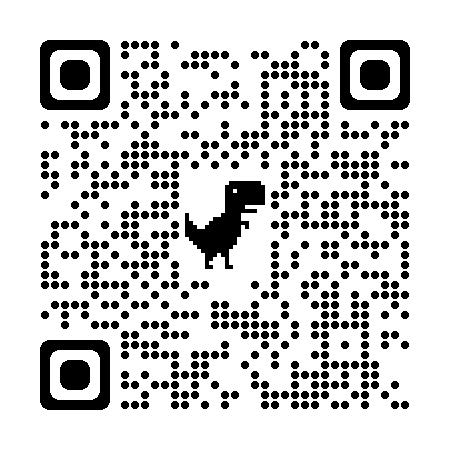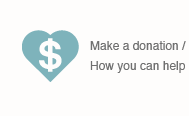Neurodiversity: What is it?
For our September newsletter, our theme is neurodiversity, which is another method of celebrating how we learn differently.Neurodiversity is a term used to describe a positive attitude movement towards special education by celebrating student’s strengths and forming educational strategies that are strength-based instead of deficiency focused. Thomas Armstrong, the author of many neurodiversity publications such as Neurodiversity in the Classroom: Strength-Based Strategies to Help Students with Special Needs Succeed in School and Life and The Power of Neurodiversity: Unleashing the Advantages of Your Differently Wired Brain offers advice on how to foster neurodiversity in the classroom and beyond with tips given in his article titled “First, Discover their Strengths: A neurodiversity perspective can help educators create learning environments in which all students flourish.” At LDAS we would like to share Armstrong’s ideas and express to you how we are committed to neurodiversity with the services we provide to our community.
Be Aware of the Student’s Strengths
Thomas Armstrong discusses in his article that it is important to see our students in terms of strengths to truly inspire students to reach their full potential by expressing: “If we base our knowledge on student capability on poor test results, grades, and teacher reports, we fail to see the positive potential in our students” (Armstrong, 13, 2012). In the classroom, teachers evaluate students in a variety of cumulative methods such as portfolios and good news stories that gives the classroom teacher knowledge about the student’s strengths, talents, abilities, and interests (Armstrong, 2012), but at LDAS we look at the student’s learning style and multiple intelligences to determine what the student’s strengths are separate from academic achievement. In our Coaching Program, our students with the assistance of their coaches determine their strengths through various learning style activities, exploration of multiple intelligence, and other confidence boosting lessons that enhance both the student and the coach’s knowledge of their strengths. When the activity is completed, the student shares that information with their parent(s) and teacher(s) to make the student’s strengths known in the classroom. This is the first step we take in our coaching program to show both the student and the support team their strengths in education.
Positive Role Models
Later in the article, Armstrong makes a point of talking about the need for positive role models that are successful because of their learning differences with students. Having this knowledge of other successful individuals that have utilized their learning differences to be successful gives students a feeling that they too can be successful even when they are faced with learning challenges. In our Community Outreach programs, LDAS always makes a point of sharing the names and occupations of various successful people around the world that learn differently and found success to inspire our rising stars. The names we often reference in our presentations are Johnathon Mooney, Robert Munch, and the ever popular with students Harry Potter’s Daniel Radcliffe. Many viewers of our presentations are surprised to hear that these successful people have a learning difference.
Universal Design for Learning
When Thomas Armstrong states the term “Universal Design”, he does not mean a “one size fits all” model of education; he means taking away any issues in an individual’s education to enhance learning in the classroom. The main method Thomas Armstrong suggests in his article is the integration of assistive technology for both in the classroom and at home. At LDAS, we offer an Assistive Technology camp in the summer that teaches students and parents how to use various technologies such as Kurzweil 3000, Word Q, and App software. We feel that the more knowledge about new innovative technology gives the possibility to bridge the gap between achievement and potential. Please stay tuned for more upcoming opportunities for assistive technology training in the future.
Enhance Human Resource
We know at LDAS that it takes a team of dedicated, caring people to make sure students reach their potential in the classroom, home and beyond. Thomas Armstrong agrees when he talks about how the success of the student does not depend on the student alone but on the needs of “a complex web of human relationships” (Armstrong, 15, 2012) and a positive social network for attitudes towards school. A positive school attitude and social group can lead to high academic success (Armstrong, 2012). LDAS provides a branch in that human relationship resource by helping families with learning disabilities. LDAS provides support in IPRC meetings through our Resource Facilitator, connecting students to coaches that will help build their self-confidence and self-advocacy skills for the classroom and beyond, and community awareness programs to educate the community at large about learning differences.
Affirmative Career Aspirations
Students want to know that there is a career or employment at the end of their secondary school journey. It is imperative that their support team direct them to careers that praise and value their strengths and learning differences for these students to be successful in their aspirations. Armstrong suggests that educators take opportunities such as career days, field trips, and other hands on experiences to guide students to a career that is best suited to their strengths. LDAS is devoted to making the transition from secondary to post-secondary education as smooth as possible by our program titled Step Up! Step Up is a school program where the students explore the steps of applying to post-secondary institutions, how to choose the best matched institution for your career, and tips on having a successful first year. For more information, contact the LDAS office to book the Step Up! Presentation at your school.
Taking on a neurodiversity perspective for students with learning differences helps support a positive educational experience for all. Thomas Armstrong believes that “educators have a deep respect for student differences and seek ways to join nature and nurture together to create the best ecological niche (or differentiated learning environment) for each student” (Armstrong, 16, 2012). By adopting neurodiversity into the classroom, home, and beyond we are empowering our students to look beyond their challenges and celebrate the differences that make them unique to the classroom diversity.
Article content adapted from Thomas Armstrong’s “First, Discover their Strengths: A neurodiversity perspective can help educators create learning environments in which all students flourish.”
Armstrong, T. (2012). First, discover their strengths. Educational Leadership, 70(2), 10. Retrieved from http://search.proquest.com/docview/1111641457?accountid=14391








